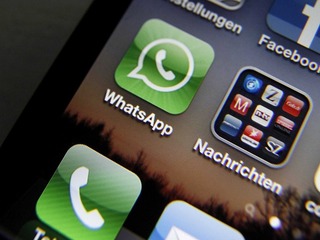
Mobile messaging app WhatsApp is apparently extremely popular in Brazil. To the point where it is actually the most used app in the entire country. So there are going to be a lot of disappointed Brazilians out there when they find out they won’t be able to access it for 48 hours starting on Thursday.
The 1st Criminal Court of São Bernardo do Campo in São Paulo, Brazil, order the app to be shut down, founder and CEO Jan Koum revealed in a Facebook message on Wednesday.
The reason, according to the Brazilian newspaper O Globo, is that due to the fact that the company did not respond to a court order, filed by an unamed petitioner seeking an injunction against WhatsApp.
“Because WhatsApp did not respond to a court order of July 23, 2015. On August 7, 2015, the company was again notified, being fixed penalty in case of non-compliance. As yet the company did not attend the court order, the prosecution requested the blocking of services for a period of 48 hours, based on the law of the Civil the internet Marco, which was granted by Judge Sandra Regina Nostre Marques,” the Court said in a statement.
That means that Brazilian telecommunication companies, including Hi, Vivo, TIM and Claro, are now being forced to block the app.
“We are disappointed in the short-sighted decision to cut off access to WhatsApp, a communication tool that so many Brazilians have come to depend on, and sad to see Brazil isolate itself from the rest of the world,” Koum said in his post.
This is not the first time that WhatsApp has run into problems in Brazil, as cell companies in the country have been lobbying against the company. Basically, am app like WhatsApp cuts into the money they can make from charging customers for SMS and voice calling.
Back in February, the largest telecom operators in Brazil got together to work on a report that they said would prove that WhatsApp was illegal. Their main argument seemed to be they, the operators, have pay activation and ongoing fees for each mobile phone number that is issued to customers. WhatsApp, on the other hand, is able to offer the same services without having to pay the same fees.
Telefonica Brazil’s president Amos Genish was even once quoted as called WhatsApp a “pirate operator.”
So, given that animosity, if you had to guess who was behind this court order, those companies would probably be a safe bet.
Even when WhatsApp does get turned back on in a little less than two days, this fight will obviously not be over. It is not clear what steps WhatsApp will take to restore its service in the country, and to fight these companies off.
The company was founded in February of 2009 by former Yahoo employees Koum and Brian Acton. Bought by Facebook for $19 billion in 2014, WhatsApp is now one of the most popular messaging services in the world, more than Facebook Messenger. It reached 900 million active users in September, and will likely hit one billion soon.
VatorNews has reached out to WhatsApp for comment and more information on its plans to fight these court orders. We will update this story if we learn more.
(Image source: blog.opovo.com)



















